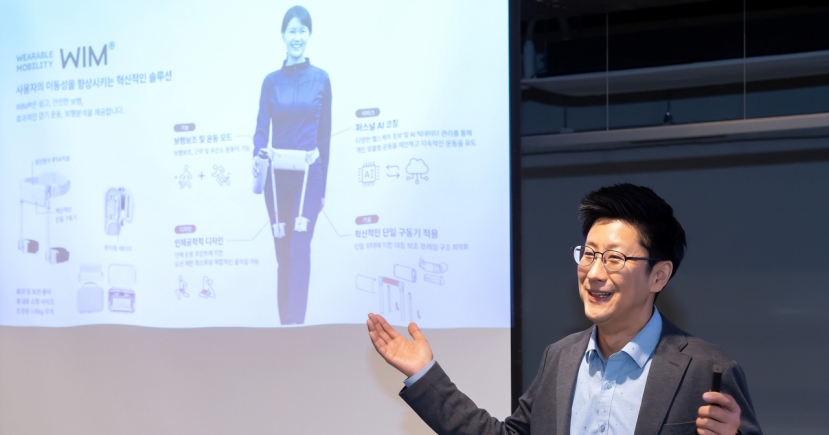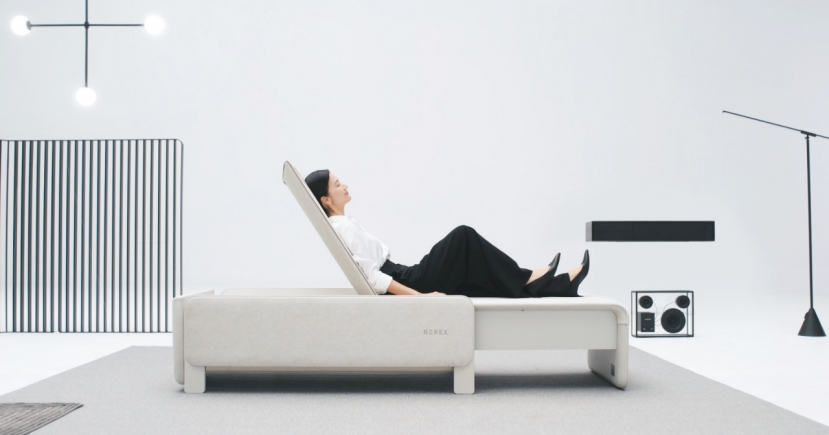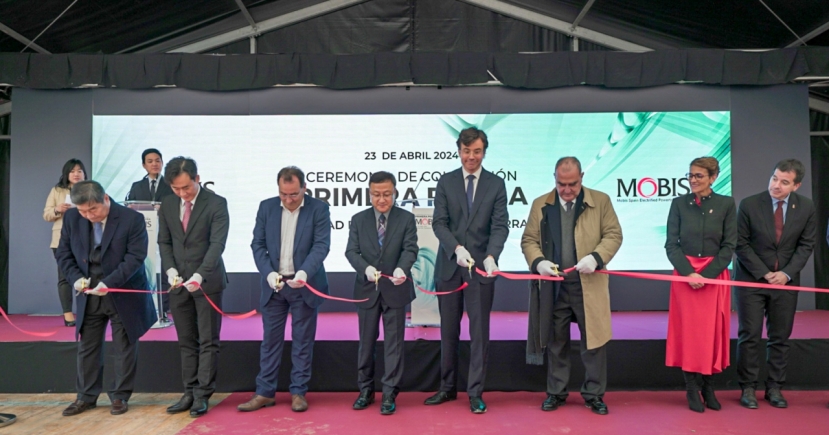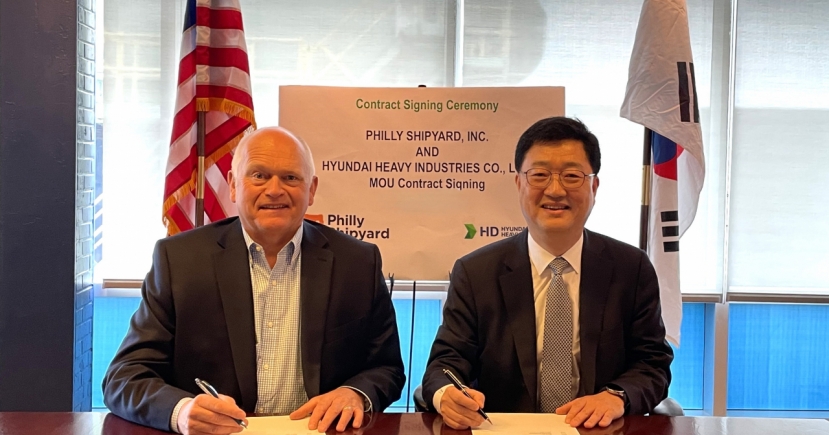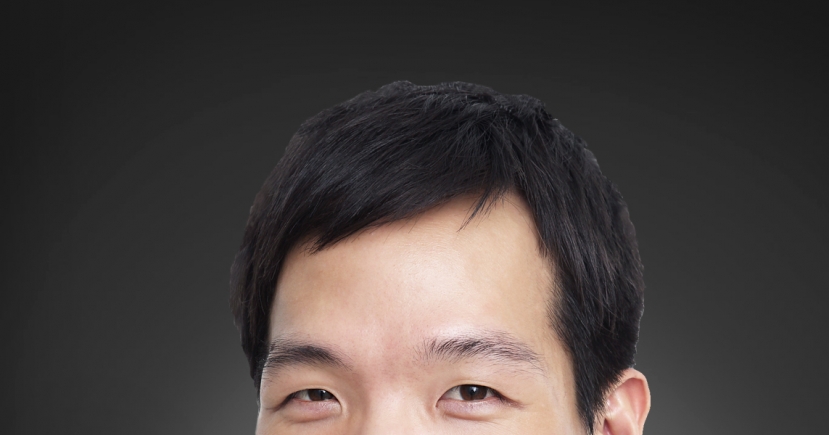For US$9.99, Hooch brings back human touch
[THE INVESTOR] Those in their 20s and early 30s -- often called the smartphone generation -- do almost everything on their mobile devices.
They make friends and date online. Instead of going out to grab a bite, they order in gourmet meals with just a couple of tabs. Even going to bars or clubs seems like a thing of the past as there is a much more efficient way to find a date, by swiping on the mobile screen.
In this digital era, US startup Hooch is encouraging the smartphone generation to go old fashioned in socializing.
“There is a whole generation growing up with less and less human interface,” said Lin Dai, CEO of the three-year-old startup, in an interview with The Investor during his visit to Seoul on July 16.
“What we want to do is to create an app that has all the experience that you have to go back into the real world.”
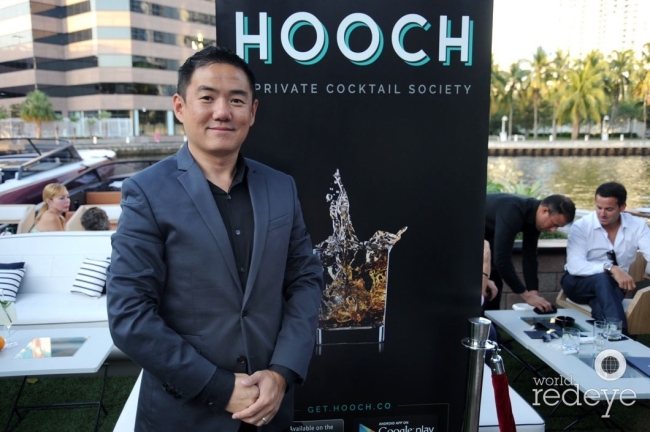 |
Hooch CEO Lin Dai. WorldRedEye |
The company’s app, also called Hooch, allows users to have a free drink a day if they sign up for a monthly fee of US$9.99 per month.
Similar to Uber, it runs its own Black premium service, through which users can receive a range of exclusive deals at upscale hotel bars or restaurants with an annual subscription fee of US$295.
Hooch has taken things a step further in a bid to evolve from a company that simply provides hotel discounts, and restaurant and bar offers into one that deploys blockchain systems to analyze user data for advertising.
One of the company’s primary goals now is to build an efficient advertising system that benefits both consumers and advertisers by collecting and analyzing consumer data via blockchain solution Tap Coin.
The blockchain solution rewards Hooch users for general credit card transactions at partner venues with Tap tokens, which can be used to buy drinks and tickets to parties. It can also help advertisers roll out promotional schemes in a decentralized manner.
“We think it is unfair that, in the current traditional advertising industry, publishers such as tech companies like Facebook and Google take all the money, and don’t give the users anything,” Lin said.
“The future of advertising is really about allowing brands to pay consumers directly, we think Tap is the way to allow them to do that.”
As of July, it has successfully raised US$7.5 million in funding. Some of the investors include billionaire Len Blavatnik, and Warner Music Group CEO Stephen Cooper.
Celebrities in the sports and entertainment segments are also betting on the hospitality app operator that has been trying to expand its operations in global markets recently, including Hong Kong and Seoul.
He said the New York-headquartered startup is now preparing to officially launch the drink-a-day service in Seoul, probably in Iteawon, one of the city’s hippest places, within this year. The premium Hooch Black is currently available in Korea.
Below are excerpts from the interview with the Hooch CEO.
THE INVESTOR: When will you officially launch the drink-a-day service in Korea?
Lin Dai: It will take probably a few months to redo the software so that the service is available in different languages, and Korean currency. However, the subscription system and in-app UI/UX are not optimized for Korean users now, so we are making efforts. We will do our best to launch the service in Korea this year. The hotel booking service is available here right now. Around 100,000 hotels are already available worldwide and you can use the service in Korea now.
TI: How many subscribers do you need to be profitable with the US$9.99 business model?
Lin: Not a lot. It is usually somewhere between 4,000 and 5,000. In New York, we got there very quickly, and that helped us to expand outside the city. The important thing is we have a strong local team that is familiar with the entire hospitality scene, including top hotels, restaurants and bars. We see that as very important in each city we launch.
TI: How many bars and restaurants do you plan to have on your platform in Korea?
Lin: In New York, we started with just 12 bars two years ago, and became a big hit instantly. I think somewhere between 30 to 40 locations in one or two neighborhoods like Itaewon, and hopefully somewhere else, will be great. Five to 10 locations in each of the neighborhoods people go around to drink a lot will be a good start.
TI: Are you going to expand the Hooch service to other cities like Busan?
Lin: We are in an early stages right now. If you have a good recommendation, I would love to hear about where else we should expand.
TI: Are you going to stick to the name Hooch in Korea, or rename it for localization?
Lin: I think it is going to be the same app, and it will still be called Hooch. The service here is going to be Hooch Korea. The app will be available in Korean.
TI: Why did you deploy blochchain technology?
Lin: We believe that blockchain technology will be the future, so we want to challenge how to get every consumer on it. A big opportunity is in (blockchain-based) consumer data. So we right now act as a data broker in the US where major brands -- alcoholic and non-alcoholic beverage firms -- like Red Bulls, or even Paramount Movie Studios pay us for marketing the data (available on our platform.)
We think it is unfair that, in the current traditional advertising industry, publishers such as tech companies like Facebook and Google take all the money, and don’t give the users anything. So the future of advertising is really about allowing brands to pay consumers directly, we think Tap is the way to allow them to do that.
TI: Tell us about the blockchain solution Tap?
Lin: We are running decentralized ad systems built by the Tap network, or Tap protocol. We allow advertisers to create micro campaigns, so instead of doing US$1 million campaigns for one publisher, they now have the ability to find 200,000 customers (the Hooch subscribers) that match their criteria based on purchase history.
For example, we can find 200,000 customers who have purchased Pizza Hut in the last 90 days for Dominos Pizza. And then what Dominos can do is to deposit US$5 Tap coins into these 200,000 customers’ wallets to encourage them to spend that when buying a pizza. So customers directly get rewarded. That means brands can now run 200,000 micro campaigns for US$5 each. So the campaigns are literally being managed by 200,000 different smart contracts, while consumers can sell or show their data to brands. Companies can also track the results of the campaigns to see whether consumers actually end up redeeming pizza, or making additional purchases. So it is a one-on-one advertising, enabled by the technology, that no one ever has been able to do until now as the technology was not there.
TI: What is the vision of Hooch?
Lin: A lot of the successful apps keep you on the couch, you are sitting on the sofa and swiping for everything to be delivered to you. So we think for young people, there is a whole generation growing up with less and less human interface. So what we want to do is to create an app that is all of that experience that you have to go back into the real world.
TI: Have a plan to work with Korean entertainment companies, such as JYP or SM?
Lin: We see a lot of opportunities here. Korean people drink a lot, and they love pop culture. And we are all about experience. In the US, we have a lot of access to big name companies and investors, including Warner Music Group, and we have a lot of access to celebrities. Everybody in the entertainment segment here is very interested in kind of learning about the Hooch model and how we work with big entertainment companies.
By Kim Young-won (wone0102@heraldcorp.com)



